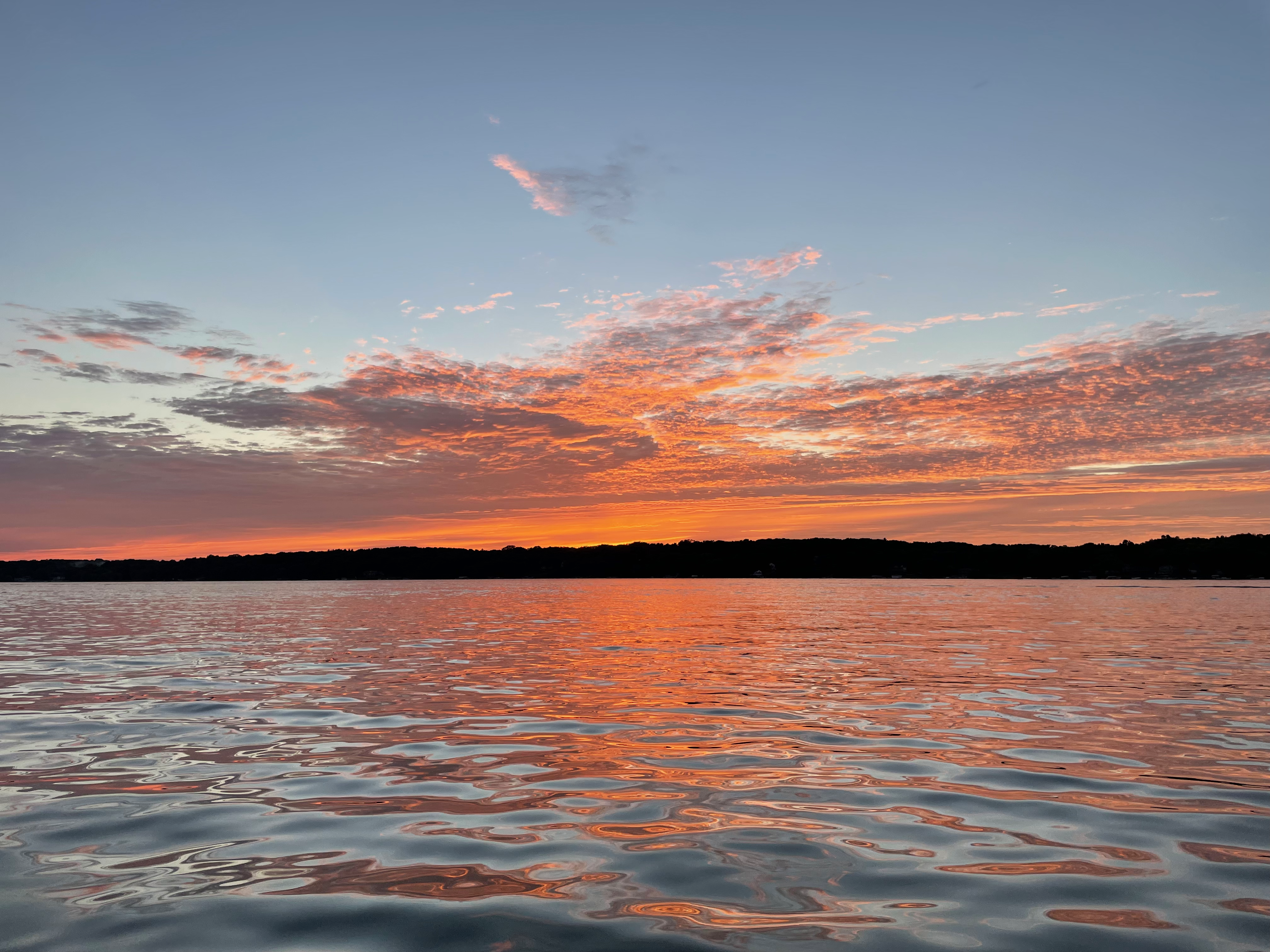It has been a while since my last post! Over the past ~9 months, I started a new job at Argonne National Laboratory and relocated to the state of Illinois, more specifically the Western Suburbs of Chicago, Illinois. I work with Scott Collis, a scientist and Geospatial Computing, Innovations, and Sensing (GCIS) Department Head. He is also the inventor of the Python Atomspheric Radiation Measurement Toolkit (Py-ART), one of the go-to packages when working with weather radar data in Python.
Closer to Home¶
One of the nicest things about relocating is the proximity to my family in Wisconsin. I have gone back to see them several times already, spending quite a bit of time on Delavan Lake (shown below)

Reflecting on my new role¶
My new role at Argonne is similar to my old job at NCAR - I am able to develop open-source, Python software for the atmospheric science/climate community. I serve in more of a hybrid software engineer/scientist role, which has been exciting, leveraging my background in meteorology and atmospheric science. I work on both Py-ART and the Atmospheric data Community Toolkit (ACT).
Maintaining Core Meteorology Packages¶
One of my first tasks within Py-ART and ACT development was overhauling the continuous integration system, moving towards Github Actions as the automation tool instead of Travis-CI.
I have also been adding more examples, and helped organize the first ARM/ASR Open Science Workshop, taking the lead on the Tutorial side. Tutorials covered the core scientific Python packages (ex. NumPy, Matplotlib, SciPy, Xarray), and extended to domain-specific packages such as Py-ART, ACT, and Py-SP2. Here are links to the:
Goals for the Near Future¶
We have some exciting developments coming for Py-ART...
Xarray in Py-ART¶
One of the main projects I am working on right now is migrating the core data model (pyart.core.Radar) object to the xarray.Dataset data model. This will enable more cross-compatibility in the Pangeo ecosystem, and empower new tools to built on top of this ecosystem.
Radar Cookbooks¶
Another key area of development are the Project Pythia Cookbooks (ex. Radar Cookbook), which extend the Pythia Foundations content beyond the basics, diving more into domain-specific tools such as Py-ART. We link to existing foundational materials (ex. NumPy, Matplotlib) where possible, and build new content where neccessary.
Machine Learning Applications¶
I am also working on learning more about machine learning applications for weather and climate. I purchased a couple of new books, and plan on trying some test project using various climate projects, weather radar data, and open source tools.
Moving Away from Colorado¶
It was tough saying goodbye to my friends and former coworkers in Colorado. Living in the Boulder area was an amazing experience, one that I will always be thankful for. I miss Tuesday night trivia at Rayback, Friday Happy Hour at Jungle, and Saturday morning hikes around Boulder’s world-class trails.
I look forward to visiting my Boulder friends in the future, and I am sure work will bring me to the Boulder at some point (looking forward to AMS 2023 in Denver).
Conclusions¶
It has been a fun filled, productive first few months at Argonne! I have already met up new friends and coworkers around the Argonne area, and look forward to exploring the Chicago area more!
Argonne’s softball league starts Wednesday, we already found a new Tuesday trivia place, and I have reconnected with some of my best friends from undergrad, who live a short drive away.
I am adjusting to my new home, and as with all things, it just takes time!